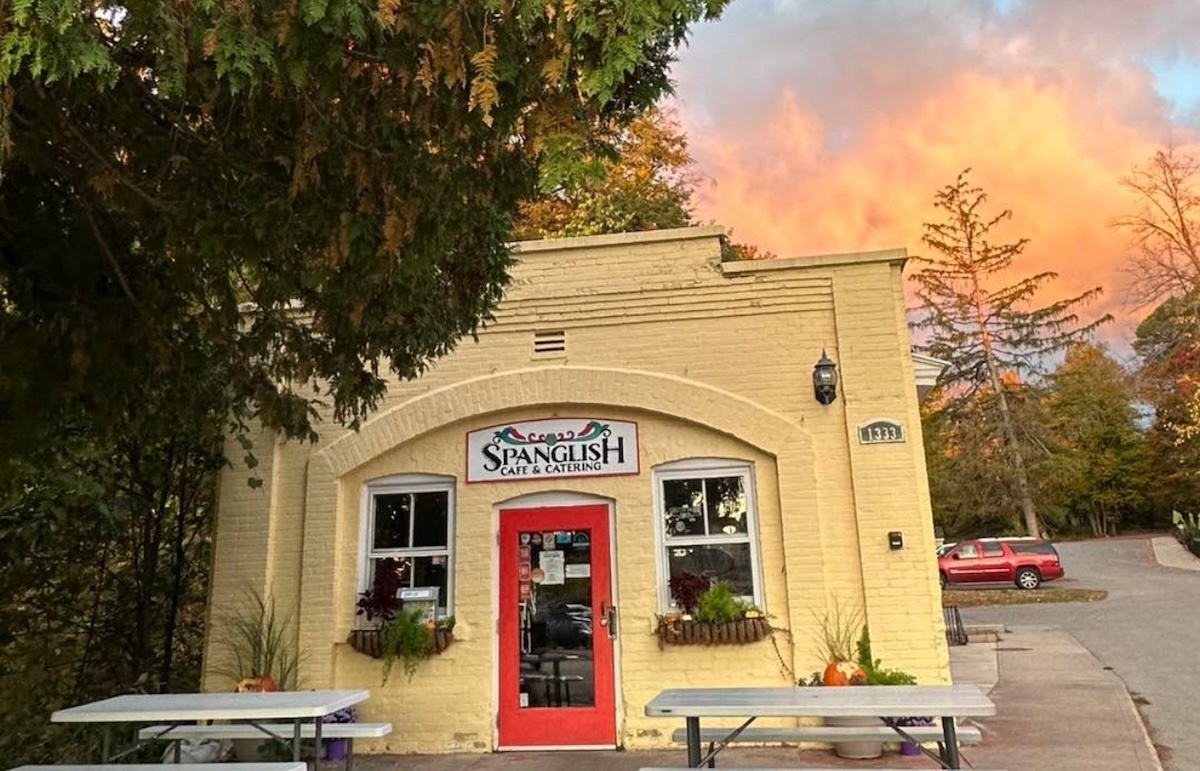
Creating Recovery Friendly Workplaces
TC’s Spanglish hopes more businesses will follow their lead
By Anna Faller | July 19, 2025
If Anna Serrano, chef-owner of Spanglish in Traverse City, had her way, we’d be approaching our shared challenges not as weaknesses, but as qualities that make us most human.
Per Paula Lipinski, CEO of Addiction Treatment Services (ATS) in Traverse City, the nonprofit served about 1,500 people in 2024. Of those individuals, alcohol and opioid use disorders accounted for the overwhelming majority—some 65 and 35 percent of cases, respectively.
“Addiction can be so devastating to families and people,” Serrano notes. “It’s really easy to get overwhelmed and [think], where do I even begin? How could I make any of that better?”
Her philosophy, however, is simple: by picking out facets of those larger issues we can address, we can grow our solo crusades into the community effort needed to implement widespread solutions. For Spanglish, one of those initiatives is becoming a Michigan Recovery Friendly Workplace (MI RFW).
The Impetus
Offered through the Michigan Department of Health and Human Services (MDHHS) and the Michigan Public Health Institute (MPHI), MI RFW offers a concentrated curriculum aimed at employers and management personnel to help support staff on their recovery journey and foster a healthy workplace environment.
Per Serrano, the decision to become recovery-ready actually goes back to a Spanglish employee who has been with the eatery for six years and sober for 12. This employee has long been active in the recovery community, an effort that ultimately opened the door for the eatery’s involvement.
To earn their MI RFW certification, Spanglish turned to 217 Recovery, a local recovery community organization and nonprofit whose mission surrounds providing support and opportunities for folks in recovery from substance use, with services ranging from peer-led recovery meetings to sober community events, resources, and beyond.
“We’re always looking for opportunities to teach the community how to break the stigma and challenge the idea that people in recovery aren’t capable,” 217 Recovery Assistant Director Marney Winfield says. “It’s a very positive message that we’re trying to spread.”
The Program
The program, which 217 Recovery offers in face-to-face, digital, and hybrid formats, takes just four hours to complete and comprises a trio of modules plus a course introduction. It’s also totally free to take. Here’s the layout:
Per Peer Recovery Coach Cori Smoker, the program’s first module primarily deals with the language of recovery.
This includes some basic vocabulary (think: providing alternatives for pejorative terms like “junkie”), person-centric communication strategies, and how substance use disorder is a disease that, much like a broken bone or infection, requires medical interventions and support to address. You’ll also learn how to spot when an employee might be struggling.
“[It’s important] to deal with SUDs as a health issue, [rather than through a lens of] ‘you messed up’ or ‘you’re a bad person,” Serrano says. “It’s about seeing that someone has an issue, not that they are the issue.”
From there, Module 2 dives into creating an equitable workplace environment for employees in recovery—how to provide reasonable accommodations, for instance, or ensuring a judgement-free atmosphere—and complete a few real-world simulations.
The third and final module connects the business with local and federal recovery resources—these range from ATS and Munson Behavioral Health to Michigan 2-1-1 and the national Suicide and Crisis Hotline—as well as instruction on how to safely administer Narcan/naloxone for treating opioid overdoses. (Spanglish now has a box right outside their building.)
“It’s all about changing that mindset of how we talk, how we act, and how we view [SUDs],” Smoker says. “[By] learning that this is real and it’s out there, we can better serve the people we’re working with.”
The Goals
The first step toward achieving that change, all interviewees agree, is reducing the stigma surrounding SUDs.
Recent Center for Disease Control (CDC) data estimates that about 70 percent of adults with SUDs are gainfully employed. Further, these issues don’t discriminate, affecting hospitality workers, lawyers, doctors, teachers, and everyone in between. In other words, you likely know or have worked with someone struggling with addiction, even if their struggle at that time was silent.
The fact is, substance use disorders are far more prevalent than we might like to acknowledge, but few are willing to talk about them because of the social weight they carry. (As Lipinski points out, there’s a reason 12-step programs have historically been anonymous). Add to that the stress of navigating a job in recovery—or worse, the prospect of losing it—along with the dangerous social view that “[those with SUDs] are less deserving,” Serrano says, and suddenly masking a struggle with addiction seems like the only available option.
An employer that’s Recovery Friendly, however, is equipped with a double set of tools: one to help their employees access the resources and treatments they might need to heal and another in service of fostering a thriving community down the line.
Factors here could include rates of employee retention, which have actually been shown to increase in workplaces that offer recovery support. And as Lipinski notes, those who find acceptance and a sense of community during recovery—be it through treatment, work, or elsewhere—are far more likely to be successful in their pursuit than those who don’t have that support in place.
“Any time that you feel you’re ‘a part of’ in recovery—when you feel heard, understood, and accepted—the better your recovery is going to be,” she explains.
The Results
Since receiving their designation last year, Spanglish’s tight-knit community has implemented key recovery supports like a trained team of contacts, systems for identifying and responding if an employee shows signs of an SUD, and the modeling that there’s life after addiction for the young-leaning staff.
“As a young person, to see that people can struggle and get better, that there’s hope, I think is a great benefit to them,” Serrano says.
Then there’s the increased visibility a credential like the MI RFW program can garner. "A lot of agencies who have signed on already had those practices [in place],” Lipinski says, though she also notes that the “fancy title” has worked double time in the region to foster awareness.
Per Serrano, if a small business like Spanglish can pilot the program, the hope is that others will see that success and then pursue their own MI RFW training. From there, it’s a domino effect of better-equipped workplaces and an increased number of recovering employees who can then access the help that they need. The first step, though, is joining the conversation.
“It sounds so simple [to say] we just need to talk about it, but it really is that easy!” Lipinski says. “Meet somebody who’s in recovery and let them tell you their story, because we’re pretty amazing people.”
Find Spanglish at 1333 Yellow Dr. in Traverse City. spanglishtc.com. For more information on the Michigan Recovery Ready Workplace initiative, visit recoveryfriendlymi.com, or contact 217 Recovery at 217recovery.com.
Trending

Our Top Stories of 2025
Each year, we look back at the stories we’ve shared over the last 12 months and pull together the ones that got the mo… Read More >>
A Solo Rattler
Frontman of folk-rock band Michigan Rattlers Graham Young brings his solo performance to Great Lakes Center for the Arts in … Read More >>
GTB Starting the Year with Tradition
The Grand Traverse Band of Ottawa and Chippewa Indians hosts the Kchi Wiikwedong Anishinaabek Maawnjidowin Round Dance on Ja… Read More >>


